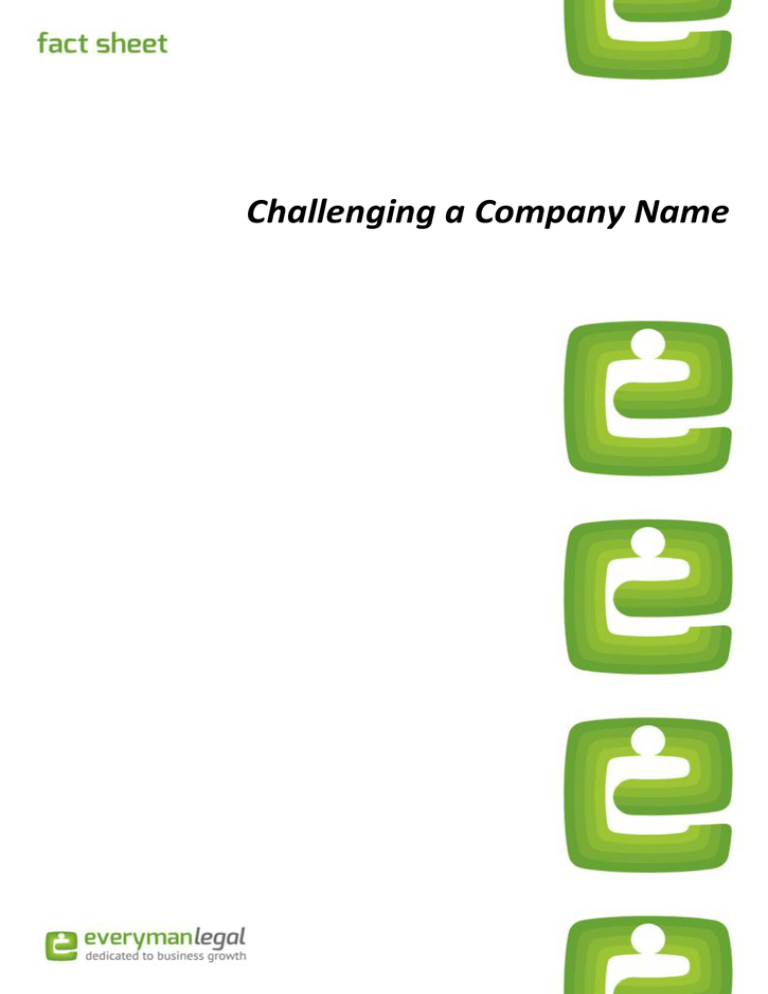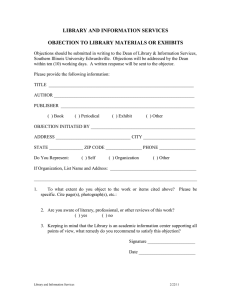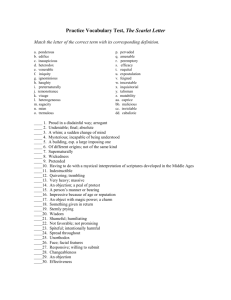
Challenging a Company Name
Preliminary
Will my objection be successful?
On incorporation of a company, the
proposed company name is checked against
the Index of Company Names maintained at
Companies House. To save the public from
confusion it is a long-standing principle that
no two companies can have the same name.
This type of objection is considered solely on
the basis of the company names themselves.
Factors such as disputes between directors,
trademark
infringements
and/or
trading/business names will not be taken into
account in deciding whether to issue a
direction.
The Companies Act 2006 introduced a new
provision designed to protect a company
where another company is registered with
the same, or a very similar name. The
protection afforded by the earlier 1985 Act
has also been continued in the 2006 Act. As
a result, there are now two routes available
if you wish to challenge another company
name.
A “too like” objection
Where another company has registered a
name that is the same as, or very similar to,
that of your own company, it may be
possible to raise a “too like” objection at
Companies House. Section 67 of the
Companies Act 2006 gives the Secretary of
State the power to direct a company to
change its name, within a specified period of
time, if it has been registered with a name
that is the same as or, in the opinion of the
Secretary of State, is too like:
a name already appearing (at the time
of the registration) in the Registrar's
Index of Company Names, or
a name that should have appeared in
the Index at that time.
The aim of this power is to prevent the
public from becoming confused by the
appearance of two identical, or very similar,
names on the Index of Company Names. The
rules apply to any name which appears on
the Index which includes companies, LLPs
and other bodies such as Limited
Partnerships.
Companies House guidance explains that, in
practice, a company name will be considered
to be “too like” another company name
where:
the names differ by only one or two
characters, (and the longer the
company name, the more likely a single
character difference will make); and/or
the names differ because of
punctuation, or the spacing or order of
letters and words; and/or
and/or
the name is sufficiently similar to such a
name that it would be likely to mislead.
An application under this provision is
submitted to The Company Names Tribunal
on a CNA 1 Form. Unlike a “too like”
objection, a complaint of this sort will include
an element of opportunism. If the only
reason for the challenge is that the names
are too similar, The Company Names Tribunal
will simply refer the complaint to Companies
House.
Possible defences and the chances
of success
To make a successful defence to the
challenge, the respondent would have to
establish one of the following:
1)
the name was registered before the
activities that the objector relies on to
show goodwill had begun; or
2)
the respondent company is operating
under the name or is proposing to do so
and has incurred substantial start up
costs, or was operating under the name
and is now dormant; or
3)
the name was registered in the normal
course of a company formation business
and the company is available for sale to
the objector on the standard terms of
that business; or
4)
the name was adopted in good faith; or
5)
the interests of the objector are not
negatively affected to a significant
extent.
the names look and sound the same.
Names that differ by the inclusion of
additional words (as opposed to a few
characters) will not be treated as “too like”
regardless of whether the additional word
does or does not describe an activity in
detail.
How do I raise a “too like”
objection?
A “too like” objection should be delivered to
the Secretary of State at Companies House
within 12 months of the date of registration
of the name. There is no set form for such an
objection.
The Company Names Tribunal
Additionally, or alternatively, section 69 of
the Companies Act 2006 allows a company
name to be challenged on the basis that:
the name is the same as a name
associated with the objector and the
objector has goodwill in that name;
If the respondent could not establish any of
the above, the objection would be successful
and an order to change the respondent
company’s name would be made.
If the circumstances listed in 1, 2, or 3 above
were established by the respondent, a
challenge under this provision would still be
very likely to succeed if it could be
established that the main purpose for
registering the name was to obtain money
(or some other form of consideration) from
the objector or to prevent the objector from
registering his name.
Other options
A company may be liable for the tort of
‘passing off’ where:
Should I raise this challenge?
a third party can prove it has goodwill
in the company name;
The costs and time implications of pursuing a
change of name order through The Company
Names Tribunal should be carefully weighed
against the risk of the potential issues that
could be caused by the respondent using the
similar name. The initial £400 fee to file the
CNA 1 Form would be followed by further
fees to file evidence for example and so costs
could quickly rise.
the other company is misrepresenting
itself as that third party; and
For further information, the Company Names
Adjudicator Rules 2008 provides the basic
procedural machinery for objections under
section 69.
damage is caused as a result.
Alternatively, a company may commit trade
mark infringement where it uses a name
which is the same, similar, or in some cases
dissimilar, to a registered trade or service
mark. Further information can be obtained
from the UK Intellectual Property Office
website: http://www.ipo.gov.uk.
Coke Cola / Coca-Cola
Having only come into force on 1 October
2008, the first decision under this right of
complaint occurred in December 2008 when
The Company Names Tribunal made an order
against Coke Cola Limited in response to an
application made by The Coca-Cola Company
Limited. The adjudicator required the
respondent to change its name within one
month as the use of the name, within the UK,
would have likely misled by suggesting a
connection between the companies.
I found the service from Everyman
everything that I had wanted.
Oliver Chapple
ISIS Concepts
© Everyman Legal Limited 2012 - 2013
Important Notice
This memorandum is designed to provide a general
commentary on aspects of the subject matter covered.
It does not purport to be comprehensive or render legal
advice. Everyman Legal Limited and the author
expressly disclaims any liability in respect of the
consequences resulting from acting or refraining from
acting on the basis of any matter contained in this
publication.
All rights are reserved



